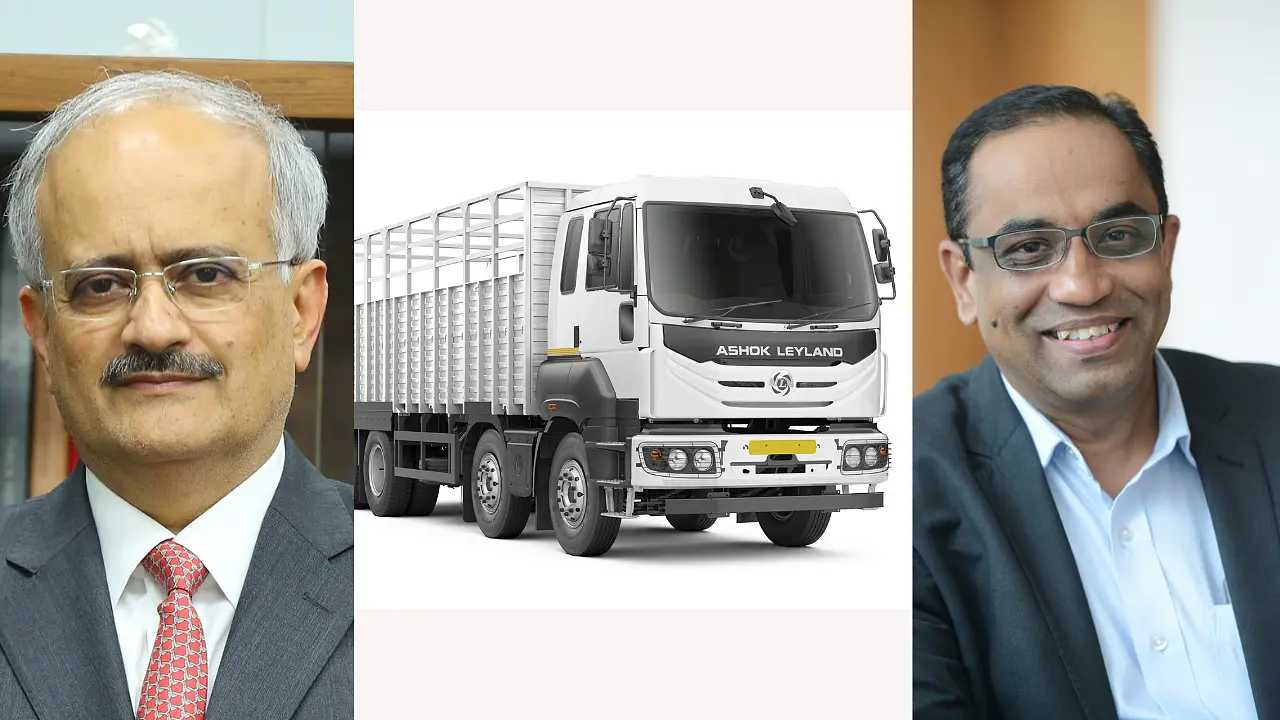
Leading Commercial Vehicle (CV) maker and Hinduja Group flagship Ashok Leyland (AL) has announced a capital expenditure of INR 750 crore for FY22 though its focus will be on conserving cash.
Addressing the media on Q4 and annual results, Gopal Mahadevan, Whole Time Director & Chief Financial Officer, Ashok Leyland, said the utilisation of the funds depends upon the level of investment the company wants to carry out. Broadly, “we know that we need to invest in the capacity to debottleneck.”
Making the company risk-free is one of the main objectives for the company. Therefore, the immediate priority for AL is to bank on electromobility.
Vipin Sondhi, MD & CEO Ashok Leyland, said, “We will be going in for a global play on electric buses and electric LCVs, and then in the future on alternate fuels, and there are lot conversations on hydrogen as well. So in terms of strategy, we will remain in CVs; our vision remains unchanged, we will go to international markets, and the bits and pieces could get accelerated depending upon the particular situation at that point in time.”
Mahadevan said the entire EV initiative of the company will come under this UK-based entity Switch Mobility (erstwhile Optare), which is 92% owned by AL. It will have its arm in India, which will be the mother plant for EVs. In addition to the domestic market, it will also cater to the customers of EVs in the SAARC region, which according to him, is a “super important market.”
In addition, OHM Global Mobility, the eMaas platform company and the subsidiary of Switch Mobility, will “provide EVs almost like pay per kilometre for the customers; but there is more to this, and we will unfold it very shortly,” he added.
Mahadevan said the FY21 was a challenging year due to worldwide COVID and the Indian automotive industry introducing BS-VI emission compliant vehicles. Besides, the sector witnessed a steep hike in raw materials prices, especially steel, despite the demand being weak.
The uncertainty in banking and the interest rates affected the CV industry that primarily depends on financing. The bus segment was worst affected as the industry saw sales of about 7,000 units against the total industry volume of over 45,000 units. However, despite all the hurdles, the industry showed a “smart increase in Q4,” he said.
For Q4FY21, the company has reported a revenue of INR 7,000 crore against INR 3,838 crore in the same period last year, growing by 82%. While the PBT for the quarter was at INR 314 crore against a loss of INR 72 crore, the PAT was at INR 241 crore against a loss of INR 57 crore during the period. As a result, Q4 EBITDA was at 7.6% as against 4.8% last year.
Revenue for the entire year was at INR 15,301 crore against INR 17,467 crore over the same period last year. Loss before tax was INR 412 crore against a profit before tax of INR 362 crore last year, while loss after tax was at INR 314 crore against a profit after tax of INR 240 crore the previous year. The EBITDA for full-year was at 3.5% as against 6.7% last year.
The challenges in the market due to COVID-19 impacted the volumes and performance of the company and industry in the first half of FY21. However, AL and the industry saw a healthy sequential recovery in H2, post the gradual removal of the lockdown.
Sequentially, over Q3FY21, MHCV truck volumes for AL have grown by 57% in Q4FY21 which was higher than the industry growth of 53%. This resulted in market share improvement of 0.8% (28.9% in Q4 vs 28.1% in Q3).
According to the company, this performance was backed by the successful AVTR range modular truck platform that was launched in June 2020.
LCV volume for Q4FY21 at 17,042 units is 112% higher than last year volume of 8,057 units. The Bada Dost that was launched in September 2020, has clocked about 4,550 units in Q4FY21. On a full-year basis, the company’s domestic volumes of LCVs have grown by 4% at 46,671 units against 44,912 units, previous year. It may be noted that the LCV truck volumes for the industry de-grew by about 11.5%.
Despite the pandemic situation, MHCV & LCV exports grew by over 40% to 3,164 units. However, the export volumes dropped by about 10% to 8,001 units against 8,920 units on a full-year basis.